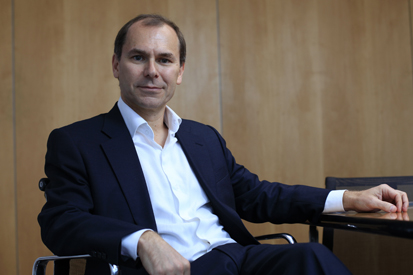 Ask most people in PR about the reputation of tobacco industry and you’re likely to get a wide variety of answers, most of which will border on the negative.
Ask most people in PR about the reputation of tobacco industry and you’re likely to get a wide variety of answers, most of which will border on the negative.
The tobacco companies have responded to the clampdown on the public sale of cigarettes through giant health warnings on packets and a steep rise in VAT by publicly talking about the need to find the “safer smoke” for its customers. And this has led to tobacco companies making massive investments in e-cigarettes.
But is this motivated by the desire to wean smokers off smoking or simply substitute one nicotine delivery system for another in order to protect market share and massive profits?
The discussions about e-cigarettes on the blogosphere and in vaping chatrooms is currently dominated by impassioned accounts from former smokers encouraging others to follow in their footsteps as the first step on the road to quitting.
Except early data on e-cigarettes shows them to be as good as or marginally better than nicotine replacement therapy (NRT) in helping smokers give up.
The effectiveness of such alternatives have as yet to make any real dent in the lives of millions of people who continue to smoke and run the risk of cancer and respiratory diseases so according to health groups it’s not that effective.
But that hasn’t stopped tobacco companies like BAT publishing scientific papers detailing the results of clinical trials showing how e-cigs produce fewer harmful by-products than the regular kind.
The big issue is do we trust the motivations that sit behind this form of supposed corporate social responsibility (CSR) shown by the tobacco companies towards their customers?
Not everyone is convinced.
The alternative view is that this latest move by tobacco companies is protect their business empires in raking in billions from a habit that many millions of people around the world find impossible to quit.
 “There’s no safe level of smoking and many decades of attempts to produce a safer cigarette have proved completely fruitless. BAT’s efforts are futile and will make little difference to the enormous toll of diseases and premature death caused by tobacco use,” observes Deborah Arnott, CEO of anti-tobacco group Ash.
“There’s no safe level of smoking and many decades of attempts to produce a safer cigarette have proved completely fruitless. BAT’s efforts are futile and will make little difference to the enormous toll of diseases and premature death caused by tobacco use,” observes Deborah Arnott, CEO of anti-tobacco group Ash.
The reputation of the tobacco industry continues to hang in the balance and ultimately it depends on future studies needing to examine whether vaping uptake serves to hold a significant number of smokers in smoking, who would otherwise quit, not just immediately, but soon enough to substantially reduce their risk of premature death and serious disease.
And such an effect would need to be balanced against the quitting volume achieved in any calculation of net population benefit.
This exemplifies an important point – that reputation matters and is dependent on trust. The trust of your customers, clients, prospects and supporters matters more than anything else in today’s competitive environment – perhaps even more than what you say about your product or service. In fact, trust has become the single biggest business issue facing organisations and companies today.
And managing reputational risk is a key priority, not just for the director of communication or PR agency but for the entire boardroom or senior leadership team.
It’s against this backdrop that the PRCA has taken a bold move to inform and stimulate a debate within the profession that seeks not just to explore how and what reputation is within this context but also why it matters from a financial point of view.
This isn’t as easy or straight-forward as it sounds, so the PRCA has engaged with some of UK’s leading PR practitioners to explore this in greater detail including:
- Sue Garrard, Senior Vice-President of Communications and Sustainable Development, Unilever
- Nigel Gilbert, Chief Marketing and Communications Officer, TSB Bank
- Amanda Mackenzie, Chief Marketing and Communications Officer, Aviva
- Zitah McMillan, Director of Communications and International, Financial Conduct Authority
- Sheila Mitchell, Marketing Director, Public Health England
- George Pascoe-Watson, Partner, Portland
- Chris Satterthwaite, Chief Executive, Chime Communications
The ‘Economics of Reputation‘ toolkit provides a one-stop shop for the busy PR professional to get the latest thinking on the subject and encourages debate within the industry through #ReputationMatters hashtag on Twitter.
The campaign is being led by Tony Langham, Lansons Chief Executive and PR Council Vice Chairman at the PRCA. The toolkit has been produced by Now and is sponsored by BNY Mellon and can be downloaded here.
The toolkit focuses on five fundamental questions:
- What is reputation?
- Why has reputation become a critical issue?
- How is reputation created?
- How does reputation create value?
- How can reputation be measured?
Jamie Brookes, Managing Director, BNY Mellon that sponsored the toolkit says:
“Understanding the impact and relevance of reputation to the future of an organisation is vital to the success of the communications team. With considerable noise surrounding this much researched topic, this work aims to distil existing research and help further the debate.”
 Tony Langham adds: “The sheer volume of literature on reputation means that developing a clear understanding of reputation has become incredibly problematic.
Tony Langham adds: “The sheer volume of literature on reputation means that developing a clear understanding of reputation has become incredibly problematic.
“This toolkit has been developed to provide a straightforward way into this hugely complex topic, which is now a leading issue for the business world.
“We hope that this will provide a basis for thought-provoking debate, which we aim to stimulate over the remainder of the year.”
Ardi Kolah is an elected Member of Council of the PRCA.














Recent Comments